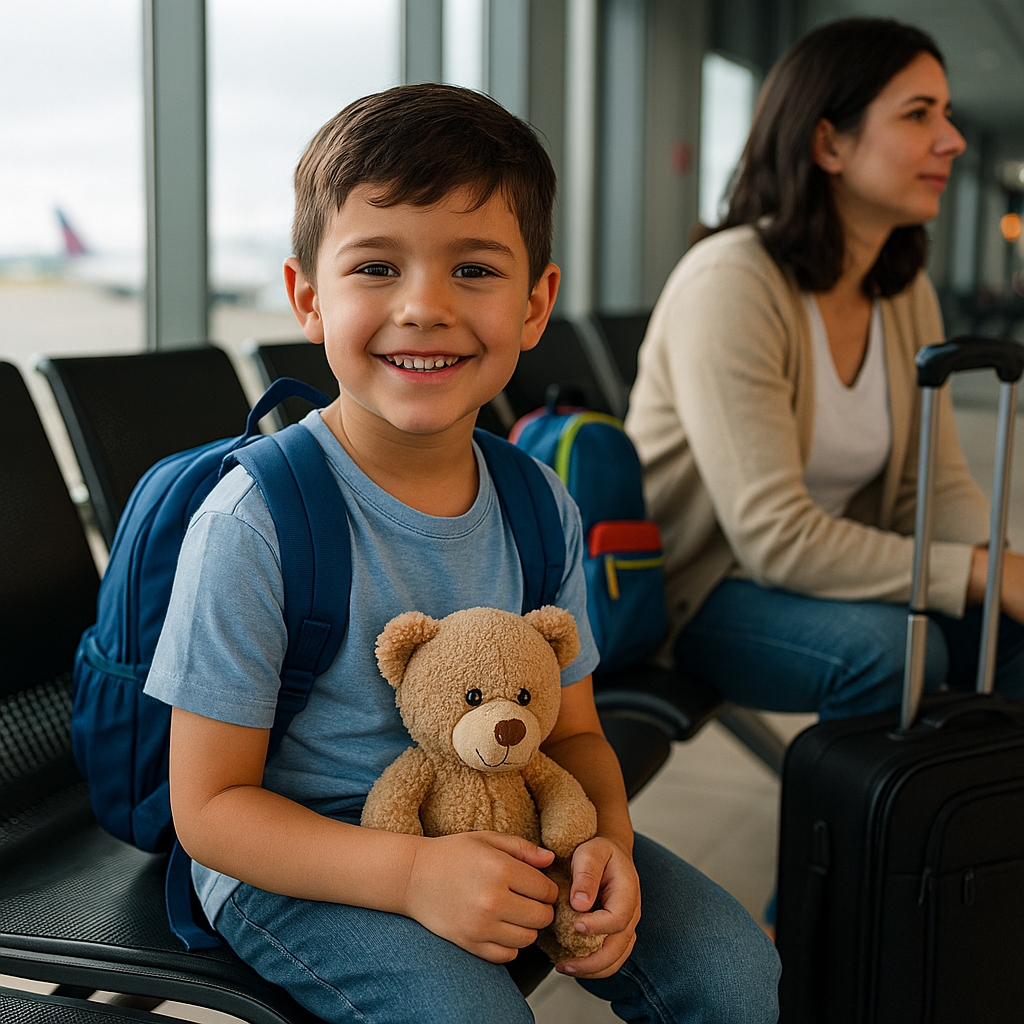
Why Travel Can Feel Overwhelming
Family vacations and day trips can create lasting memories. But for children on the autism spectrum, travel often comes with challenges. Loud airports, long car rides, changes in routine, and unfamiliar environments may lead to stress or meltdowns.
Parents often wonder:
- “How will my child handle a long car ride?”
- “What if my child struggles with airport security or waiting in lines?”
- “How can I keep routines consistent away from home?”
Applied Behavior Analysis (ABA) provides strategies to prepare children for travel and give families confidence. By breaking down routines, practicing in advance, and reinforcing successes, ABA transforms travel from stressful to enjoyable.
How ABA Supports Travel Preparation
Step 1: Preparing Through Social Stories
Therapists create personalized social stories explaining the steps of a trip. For example:
- Packing a suitcase
- Driving to the airport
- Waiting in line
- Sitting on the airplane
- Arriving at a hotel
Social stories reduce anxiety by showing children what to expect.
Step 2: Practicing Travel Routines at Home
Before leaving, families rehearse steps like walking through a “pretend” security line, waiting with a timer, or packing a carry-on bag. ABA therapists use reinforcement to make practice fun and motivating.
Step 3: Using Visual Schedules
Visual supports outline each step of the journey. A simple chart might include pictures for “car ride → airport → plane → hotel.” These visuals guide children through transitions.
Step 4: Building Flexibility
Travel rarely goes exactly as planned. ABA helps children practice coping with small changes—like a delayed flight or different restaurant menu—so they can adapt more calmly.
Step 5: Reinforcing Success
Every step forward—packing a bag independently, waiting in a line, or staying calm during a flight—is celebrated with positive reinforcement.
Real-Life Example: Flying for the First Time
Olivia, a 10-year-old from St. Louis County, had never flown before. Her parents worried about how she’d handle airport crowds and long waits.
Her ABA therapist created a social story about the airport and practiced security “pretend play” at home. Olivia also used headphones to manage noise and a timer to prepare for waiting in line.
When the family flew to Orlando, Olivia successfully followed her visual schedule and stayed calm through the process. Her parents said, “We never thought flying could be possible—but ABA made it achievable.”
Parent Tips for Smoother Travel
1. Practice Beforehand
Do small “trial runs,” like visiting the airport or taking shorter car rides, before a big trip.
2. Pack Comfort Items
Bring familiar items like a favorite toy, blanket, or headphones for sensory comfort.
3. Keep Routines Where Possible
Stick to familiar bedtime or mealtime routines, even in new settings.
4. Use Rewards
Offer small reinforcements, like a sticker or snack, for successful travel behaviors.
5. Allow Extra Time
Rushing increases stress. Plan for breaks and move at your child’s pace.
Chesterfield and St. Louis Resources for Practice
Families in Chesterfield and surrounding St. Louis communities can practice travel routines locally before big trips:
- St. Louis Lambert International Airport: Some families visit just to walk around and get used to the environment.
- Chesterfield Valley parks: Ideal for practicing patience and flexibility during longer outings.
- Local hotels: Staying overnight locally helps children adjust to new environments before a bigger trip.
- MetroLink (St. Louis transit): Short rides help practice transportation skills and handling public spaces.
- Community libraries and events: Perfect for practicing waiting and adapting to new social settings.
These local opportunities build confidence before traveling farther.
Why Travel Preparation Builds Lifelong Skills
Preparing children for travel isn’t just about vacations—it teaches life skills they’ll use for years to come.
- Flexibility: Handling unexpected changes calmly.
- Patience: Waiting in lines or sitting for longer periods.
- Independence: Packing belongings and following routines.
- Social Skills: Interacting with community members like hotel staff or flight attendants.
These skills prepare children not only for smoother family trips but also for future independence.
Long-Term Benefits for Families
Families who prepare with ABA often describe travel as less stressful and more enjoyable. Instead of avoiding trips, they feel confident exploring new places together.
Travel becomes an opportunity for bonding, adventure, and inclusion—helping children experience the same joys of exploration as their peers.
FAQ
Q1: Can ABA help with car trips as well as flights?
Yes. ABA strategies apply to all travel, from road trips to international flights.
Q2: What if my child refuses to get on a plane?
Therapists use gradual exposure—starting with looking at pictures of planes, then visiting airports, before trying flights.
Q3: Can nonverbal children use visual supports during travel?
Absolutely. Visual schedules, gestures, and communication devices are very effective.
Q4: How do I handle meltdowns while traveling?
ABA prepares coping tools—like sensory breaks or comfort items—and teaches parents how to respond calmly and consistently.
Q5: How far in advance should we start preparing?
The earlier, the better. Starting weeks or even months ahead helps children build confidence step by step.
